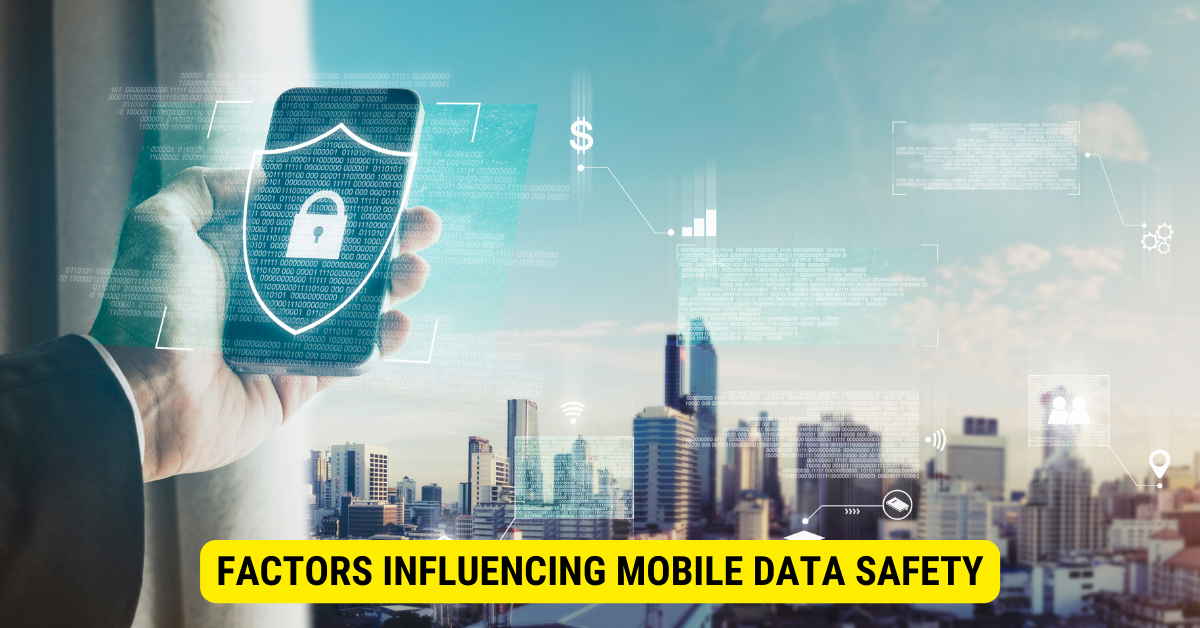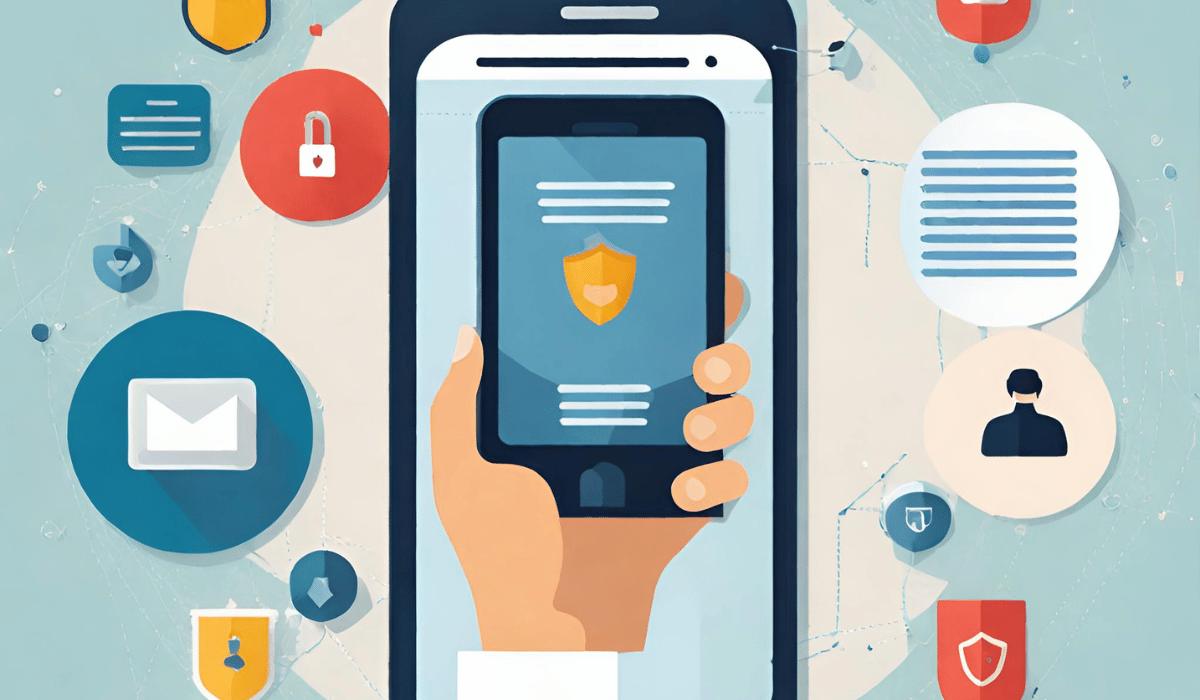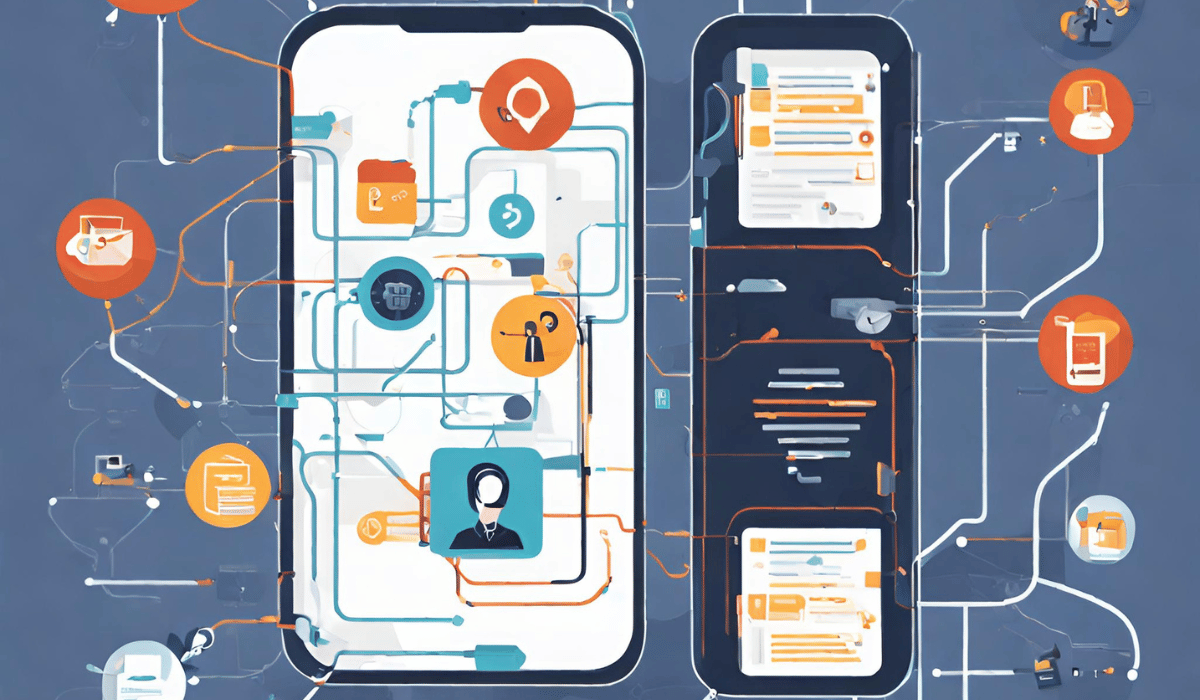Using mobile data on your smartphone is generally secure, especially compared to public Wi-Fi. However, it’s still vulnerable to certain attacks, so it’s essential to use precautions like VPNs and avoid downloading suspicious apps or visiting unsecured websites.
An Overview of Mobile Data
Mobile data, facilitated by technologies like 3G, 4G, and emerging 5G networks, allows for efficient communication and internet browsing on mobile devices. Its accessibility and speed have transformed how we communicate and access information.
The Mechanism Behind Mobile Data
When a smartphone accesses the internet, it communicates with its service provider’s network. This data exchange allows users to access the internet. Data is exchanged via radio waves between the device and network stations when sending texts or browsing websites.
For instance, sending a text involves converting the text into data packets. These are sent through the network, reaching the intended recipient. Technologies like 3G and 4G increased data transmission speeds, while 5G is set to offer unparalleled connectivity. But as technological advancements in mobile data progress, the potential for security risks also grows.
Assessing the Safety of Mobile Data
Security concerns related to mobile data have grown due to our increasing dependency on smartphones. Several factors can determine the safety of your data:
Analyzing Mobile Data Security
- Browsing Behavior: Regularly interacting with encrypted websites protects your information.
- App Security: Only downloading apps from official stores and updating them frequently keeps security levels high.
- Service Provider Security: A trustworthy service provider with a strong focus on data security is essential.
Factors Influencing Mobile Data Safety

Device Operating System
The operating system of your mobile device plays a pivotal role in data security. Different OS have distinct security features and potential vulnerabilities. It is crucial to select a device known for its security credentials and receive consistent updates.
Application Security
The apps on your smartphone can significantly influence its security. Some might contain inherent security issues or be vulnerable to external attacks. Therefore, it’s vital to ensure apps originate from trusted sources and developers. Before downloading, always check the app’s permissions, reviews, and update history.
User Behavior

A user’s actions on their mobile device, such as the websites they visit, apps they download, and security measures they employ, can make all the difference in data security. Adopting safe online practices, such as avoiding suspicious links or unknown downloads, significantly enhances data protection. Implement strong, diverse passwords for both your device and applications.
Mobile Service Provider’s Security Measures
Your choice of mobile service provider directly impacts your data’s safety. Mobile providers use different security protocols, including firewalls and intrusion detection systems, to protect their networks and the data flowing through them. It’s essential to stay updated about your provider’s security measures and ensure they adhere to the latest industry standards.
In summary, the safety of your mobile data hinges on multiple factors, including your device’s operating system, the apps you use, your online behavior, and the protective measures your mobile service provider implements. Being informed and proactive can safeguard your valuable data from unauthorized breaches.
Challenges in Mobile Data Security

Security may vary depending on device operating systems, installed apps, user behavior, and mobile service provider protocols. To ensure optimal protection, familiarize yourself with potential threats and adopt best practices.
Best Practices for Mobile Data Protection
To ensure the security of mobile data:
- Use robust passwords and enable two-factor authentication.
- Update devices and apps
- Install apps only from trusted sources and ensure they have the latest security patches.
- Be wary of public Wi-Fi and always scrutinize unsolicited communications for potential threats.
Mobile Data Risks to Be Aware Of
While mobile data brings undeniable advantages, there are risks:
- Potential Threats: Data breaches, malware attacks, and personal data theft are genuine concerns.
- Man-in-the-Middle Attacks: Interceptions can lead to unauthorized data access.
- System Vulnerabilities: Exploitations can occur in operating systems, apps, or network protocols.
The Future of Mobile Data Safety
Upcoming Trends in Mobile Data Safety
AI and machine learning advancements are paving the way for enhanced threat detection. The rise of biometrics, like fingerprint or facial recognition, further augments security measures. Continuous innovation is required to keep pace with evolving threats.
The Role of Technology in Bolstering Mobile Data Safety
With innovations introducing improved encryption methods and smarter security protocols, technology remains pivotal in enhancing mobile data security. However, an informed user base is equally important.
Key Points to Remember
- Mobile data is generally encrypted, making it difficult to breach.
- Mobile data typically offers more security than public Wi-Fi.
- The security level might vary across service providers.
- Like any technology, vulnerabilities in mobile data can be exploited.
- Restricting background data access can further boost security.
Frequently Asked Questions
- Is mobile data more secure than home Wi-Fi?
A well-configured home Wi-Fi (with WPA3 encryption and strong passwords) can be as secure as mobile data. - Can mobile data be hacked?
Yes, but it’s harder compared to hacking unsecured Wi-Fi networks. - How can I enhance mobile data security?
Update your device, use VPNs, and be selective about app permissions. - Does a VPN boost mobile data security?
Yes, it provides additional encryption. - Are all mobile data generations (3G, 4G, 5G) equally secure?
No, newer versions like 5G offer superior security features.
Conclusion
Mobile data security on smartphones hinges on several factors. As technology equips us with protective tools, understanding and effectively using them remains paramount.
